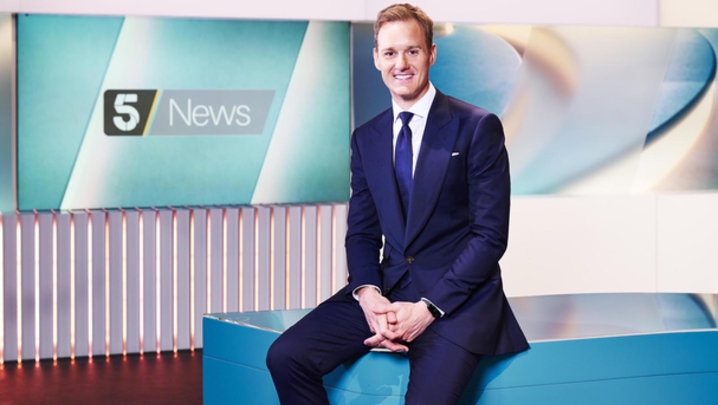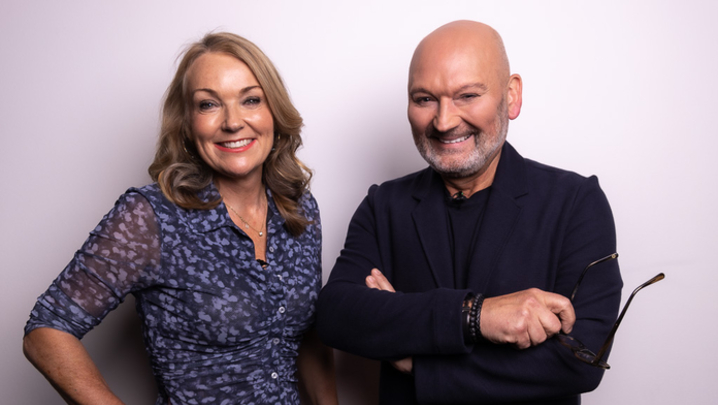Viacom’s UK and European chief, David Lynn, explains Channel 5’s place in a unique business model to Steve Clarke
If David Lynn ever grows tired of being a television executive, perhaps he should consider a career in diplomacy. When it is suggested to him that the power struggle at Viacom’s New York HQ – which finally saw the departure of CEO Philippe Dauman last August – may have troubled his own working life, Lynn barely bats an eyelid.
Five days a week, a Lycra-clad Lynn cycles the eight miles from his Fulham home to Viacom’s office in Camden, North London. The 35-minute journey may be short, but it is long enough for him to reflect on what has been a tumultuous period for the company in which he has worked for the past 19 years.
The stock price has been in meltdown and the fallout from the feud between Dauman and the family of Viacom’s controlling shareholder, Sumner Redstone, continues to obsess US media watchers.
One possibility is that Viacom will reunite with CBS under the leadership of Les Moonves.
Variety recently published a lengthy report headlined, “Sumner Redstone’s wild year”. It said: “The drama surrounding the House of Redstone has been nothing less than Shakespearean.”
Three thousand miles away in Camden, however, all appears remarkably calm: no blood-soaked daggers or vials of poison visible anywhere.
Dauman, a speaker at the RTS Cambridge Convention in 2015, was replaced by another Viacom veteran, Bob Bakish, who is now Viacom’s acting CEO.
Lynn sees Bakish’s promotion as an endorsement of Viacom’s international success: “He’s a fantastic leader who’s driven the transformation of Viacom’s international business. He’s a real visionary.
“The fact that Bob was chosen for that role is an indication of the success of Viacom internationally and also of how Viacom is looking to international for growth.”
Quite how determined Viacom is to build its business outside the US became clear two years ago. Then, it became the first American entertainment giant to buy a UK terrestrial broadcaster. By successfully outbidding other suitors – who reportedly included Discovery, Scripps and BSkyB – for Channel 5, Viacom was making a clear statement.
Until then, the group’s overseas activities had revolved around its pay-channels, principally MTV, Nickelodeon and Comedy Central.
The synergies offered by the deal were obvious. Not only could back-office functions be shared, more importantly, hit Channel 5 shows could play across Viacom’s international channels – and hit Viacom shows could appear on Channel 5.
It is no coincidence that one of Channel 5’s signature shows is a UK version of Lip Sync Battle, a format that originated on the Viacom channel Spike across the Atlantic.
“We’ve already started sharing content between Channel 5 and our pay-network in the UK and some shows are starting to go overseas as well,” notes Lynn, who was a key player in Viacom’s purchase of Channel 5.
He explains: “Northern & Shell [the broadcaster’s previous owner] had done a fantastic job turning around Channel 5: it was handed over to us in good health. I think we were best placed to bring it to the next level.”
Happily for the London-based Viacom executive, the company’s strategy for growing Channel 5’s business is starting to pay off. In November, Lynn announced that the network’s pre-tax profits had increased by almost 50% to £58.9m for the year to September 2016, up from £39.5m.
“We’ve had two years of profits and year-on-year growth,” says Lynn.
Admittedly, the Channel 5 family of channels’ overall audience share has fallen by around 1%, year on year, but its share of 16- to 34-year-old viewers, the demographic that advertisers crave, has risen by 9%.
At the same time, Channel 5 is at last winning critical acclaim for some of its original commissions: MPs Behind Closed Doors, praised by The Times TV critic Andrew Billen, wouldn’t have looked out of place on either the BBC or Channel 4.
Lynn singles out his director of programmes, the charismatic Ben Frow, for his huge contribution to 5’s transformation; Viacom inherited Frow from Northern & Shell.
“We have shows of real ambition and quality now,” notes Lynn. “Ben has done a brilliant job.
“We’re making innovative content such as Gangland, where cameras were given to gang members. It was done really sensitively.
“Our new series Slum Britain: 50 Years On, highlighting homelessness, is a fantastic series.”
In the past year, the broadcaster has increased its spend on programming by 11% to £230m.
When Viacom bought Channel 5, UK-originated content made up 50% of the schedule. Today, the figure is 66%.
“There are now only seven titles on Channel 5 that were in the schedule in 2013,” says Lynn. “We’ve commissioned 40 new series this year. There’s been a total reinvention.”
Viacom’s UK TV businesses have always enjoyed a close working relationship with Sky – Comedy Central and Nickelodeon are both joint ventures with Sky. And, since May 2015, Channel 5’s advertising has been sold by Sky’s sales house, Sky Media. This brought the network into line with the rest of Viacom’s UK-based pay-channels and branded digital properties. These already came under Sky Media’s umbrella, following a deal that Lynn negotiated in 2009.
"Our viewing has gone up four-fold, our revenue has gone up three-fold – despite all the change"
While the benefits of Sky selling Channel 5’s airtime are clear, isn’t Lynn worried that, in the longer term, advertisers will increasingly turn to social-media platforms, such as Facebook, rather than rely on TV? Moreover, ITV’s advertising revenue has taken a hit, following the Brexit referendum vote.
“I’ve been running this business since 2007,” says Lynn. “Back in 2007, everybody was talking about disruption. They’re still talking about it.
“This isn’t to say that it’s not happening, but it is back to that old adage that people tend to overestimate technological change in the short term but underestimate it in the long term.
“Our business has thrived during that period. Our viewing has gone up four-fold, our revenue has gone up three-fold – despite all the change.
“If you look at Ofcom’s [latest] report, 86% of viewing was either linear or linked with linear – linear PVR or catch-up. The viewing is still there. The ad market has been incredibly robust over the last few years.”
He does accept that, in the aftermath of the referendum, there is “a lack of visibility” in the UK ad market, but he is optimistic that more targeted advertising should help during 2017.
“Through innovations, such as AdSmart Five, our advertisers have the ability to target adverts and match them up with audiences.
“People buy advertising by broad-brush demographics. Going forward, there are tools that, say, identify people who are likely to buy a car in the next six months. Car manufacturers can advertise against that.”
And then there is the challenge to broadcasters from streaming services. Once again, Lynn is upbeat: “There’s no doubt that you’re going to see more viewing moving to on-demand.
“When it comes to TV, I’m a believer and an optimist. I think that we have a unique product. But, yes, we do have to evolve and give the viewers the opportunity to watch our content flexibly.”
Such is the success of Channel 5 as a business model for Viacom that it has inspired the company to buy another free-to-air broadcaster – this time in Latin America. In November, Viacom announced that it had acquired Argentina’s Telefe for $345m. Unlike Channel 5, Telefe also owns a pay service that operates in 17 countries.
As for any more UK acquisitions, none appear to be on the horizon for the time being. But, as Lynn points out, Viacom is unique in the UK in owning a terrestrial station alongside its traditional assets.
“Being part of a free and pay business in the UK and also being plugged into an international network is a different model. Nobody else has that,” he stresses. “That’s been a blank sheet of canvas and enabled us to approach things in different ways and it gives us unique advantages.”






